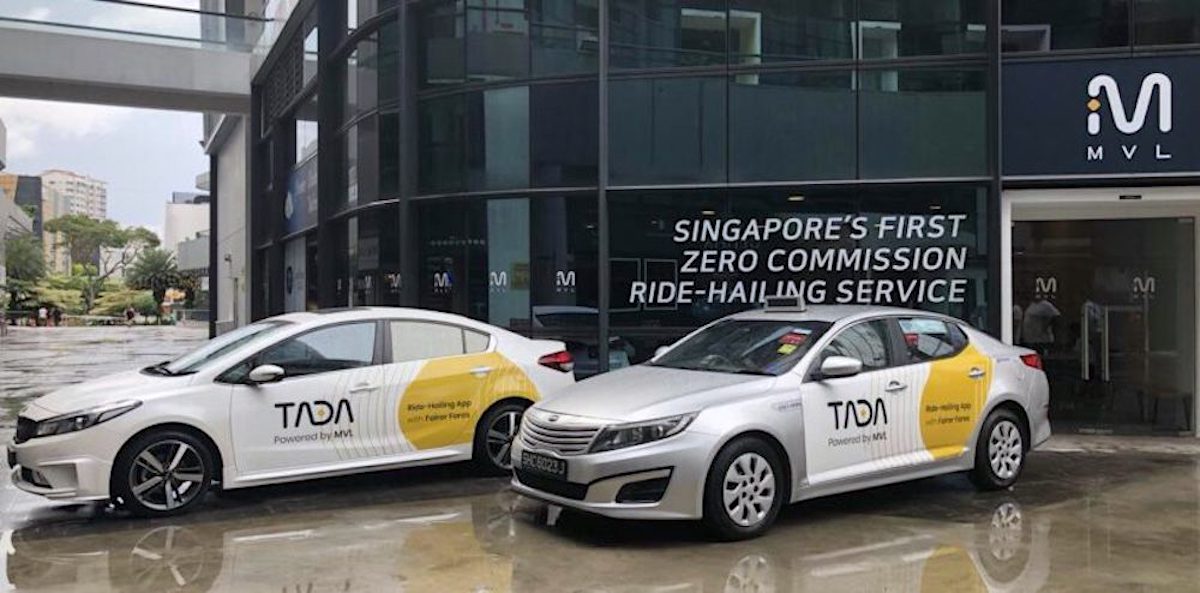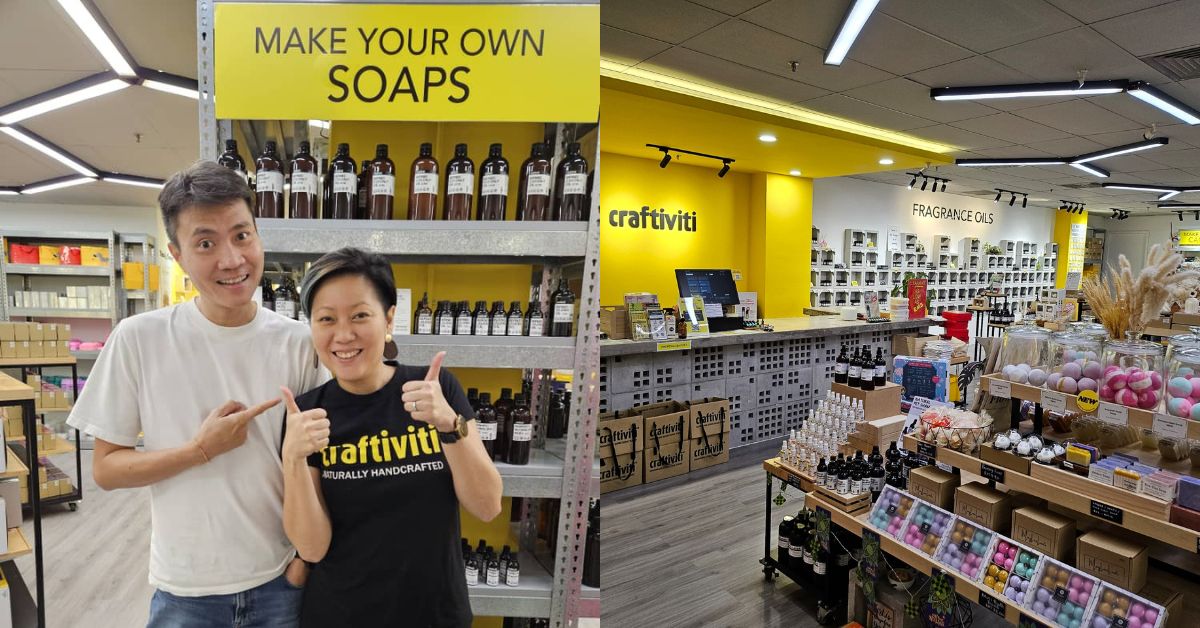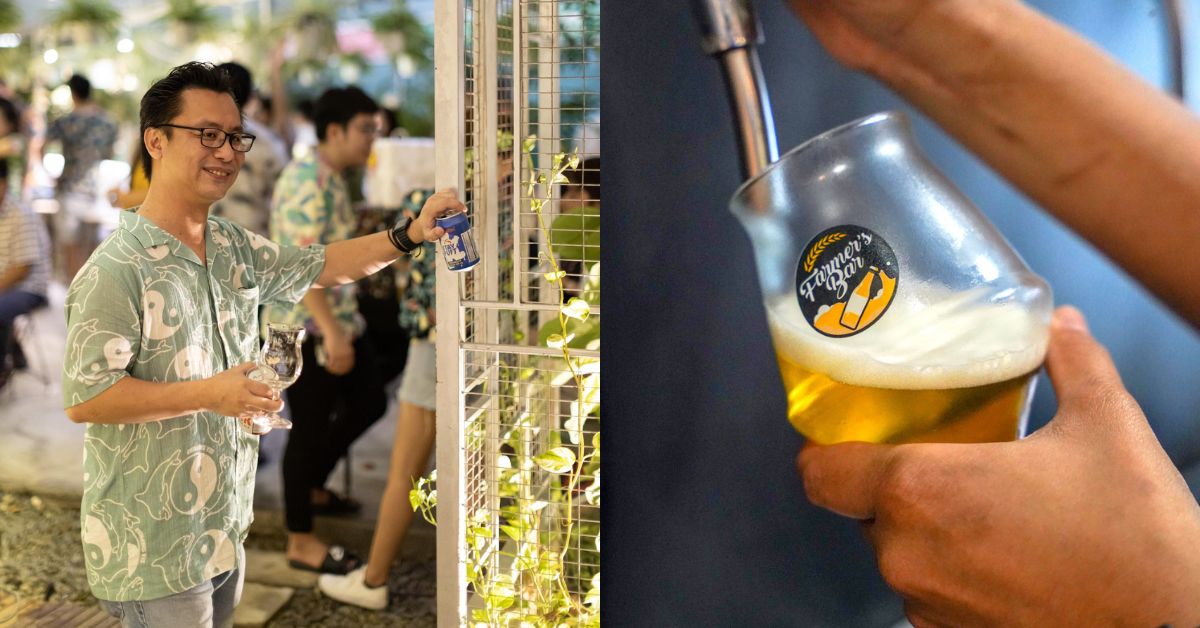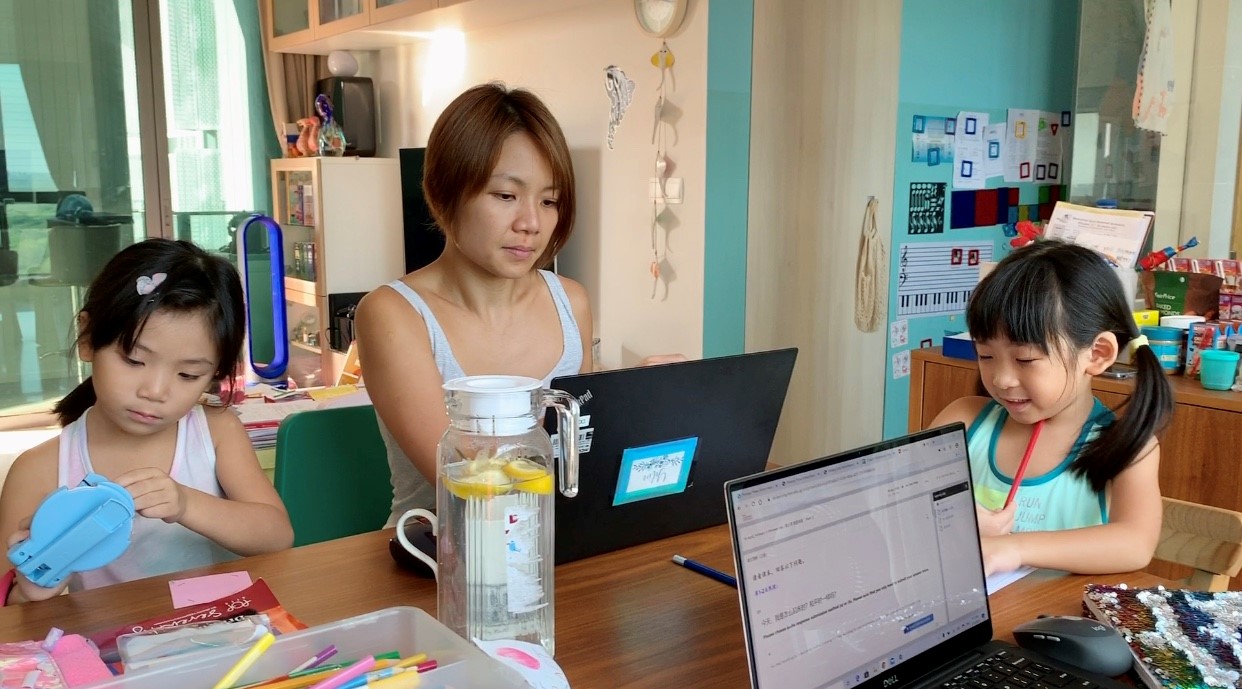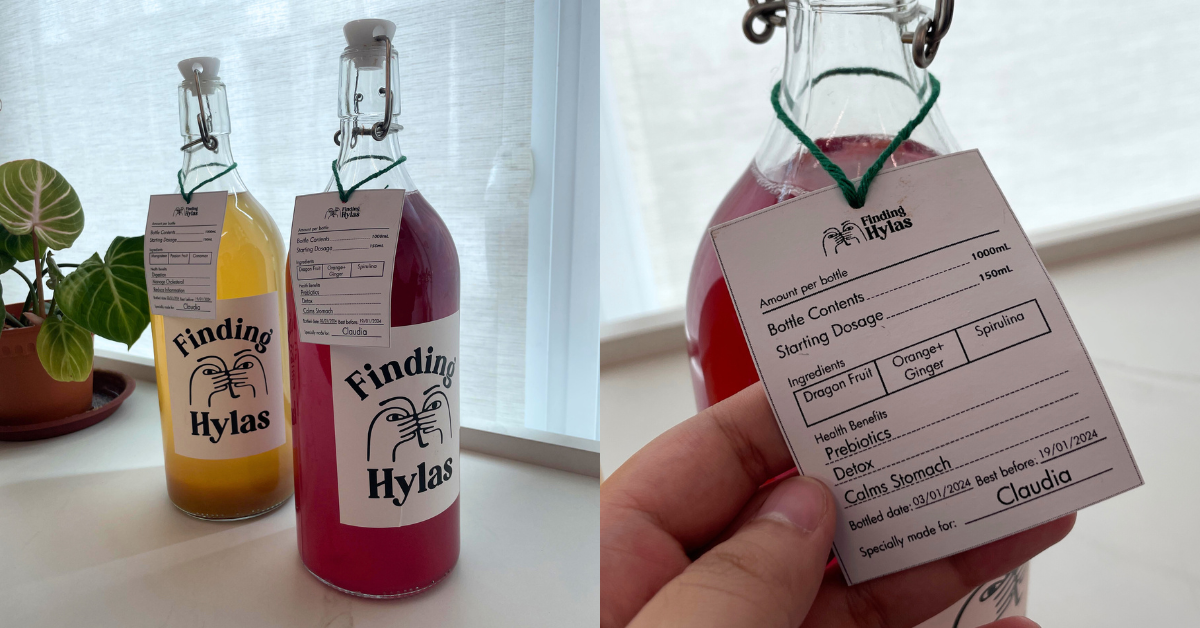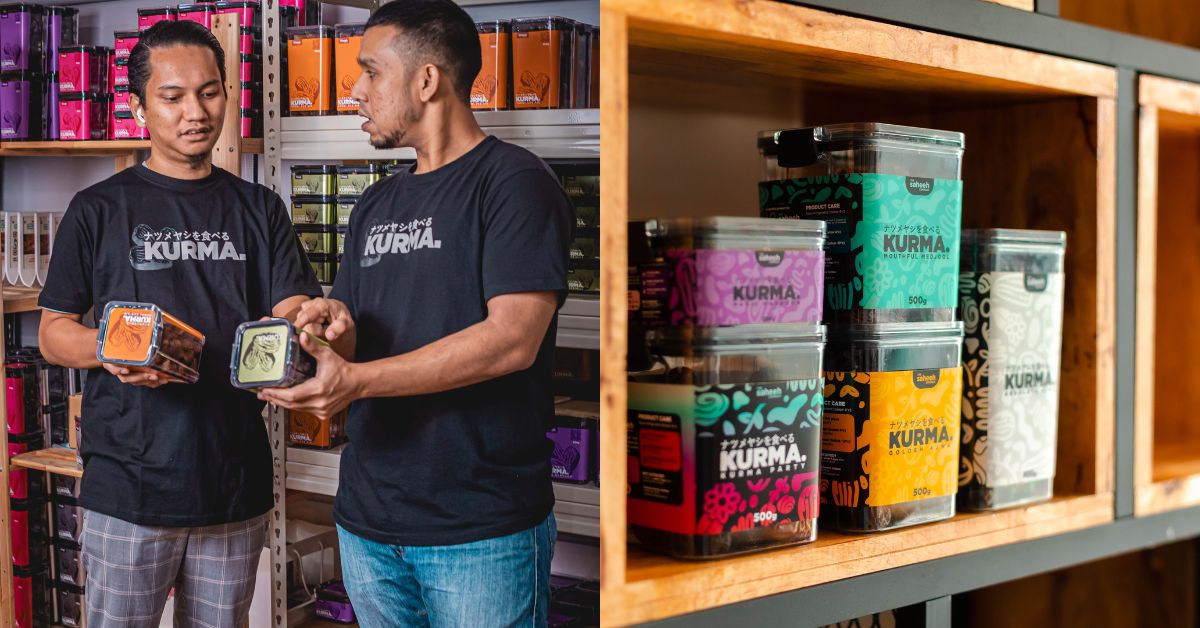MVL Foundation Pte Ltd — the parent company of local blockchain-based ride-hailing service TADA — announced last month that it has entered a partnership with Kornatus to enable their users to hail rides in both countries using their local apps within the first quarter of next year.
Kornatus, which operates BanBan Taxi, is the first and only ride-hailing startup in South Korea. Within two years of its launch, BanBan Taxi completed its nationwide expansion by recruiting 40 per cent of drivers nationwide.
Under this new partnership, both companies’ driver pools will be combined and each individual app will be able to hail the taxis owned by both companies.

In other words, people can hail rides in South Korea with the TADA app, which was only available in Southeast Asia previously, and vice versa for BanBan Taxi, which was only available in South Korea.
This comes as great news for fully-vaccinated travelers who are planning a trip to South Korea under the Vaccinated Travel Lane (VTL) scheme.
In an interview with Vulcan Post, Jonathan Chua, General Manager of TADA expressed his optimism about how this partnership will benefit both Singaporean and Korean tourists.
“With the ease of travel restrictions, we expect an increasing number of Korean tourists to visit Southeast Asian countries like Singapore. It is great news for them that they can travel around Singapore with no hassle, using the ride-hailing app they are already familiar with in Korea, and vice versa for Singaporean travellers in Korea,” he said.
“[This partnership] allows both TADA and Kornatus to break into new markets and extend mobility services globally.”
TADA currently has presence in three markets across Southeast Asia, namely Singapore, Cambodia and Vietnam; and it’s now expanding into South Korea.
Jonathan describes South Korea’s ride-hailing market as “one of the strongest” globally. It has been continuously growing, which has attracted many mobility businesses to enter its market.
At the same time, he also admits that it is difficult to penetrate the South Korean market as a foreign company as the ride-hailing services there are limited to licensed taxis.
“Partnering up with established Korean companies such as Kornatus would be most ideal for one to reach out to Korean users and achieve great business results,” he added.
TADA does not charge its drivers any commission
Closer to home, the ride-hailing market in Singapore is highly competitive, with taxi companies also jostling for a share of the pie.
Earlier this year, Singapore’s largest taxi firm ComfortDelGro rolled out a ride-hailing trial, in which its users can choose to book a taxi or private-hire car on its app.
Despite the competitive landscape, TADA is standing out from its rivals by going doing a completely different path as it gives up collecting money through commissions.
Since our launch in 2018, TADA has not charged any commission fees. Drivers can keep 100 per cent of the ride fare from each trip, excluding a S$0.30 to S$0.50 platform fee and transaction fees for cashless payments. The zero commission model also translates into lower prices for consumers.
– Jonathan Chua, General Manager of TADA
Since TADA operates on a zero-commission service, it effectively puts them on a completely different playing field than other local ride-hailing players that are commission-based.

“Our primary focus is to improve the livelihood for the drivers with a fair mobility ecosystem that we have been working on, which is a different approach from other traditional ride-hailing platforms,” said Jonathan.
Sharing further on their business strategy, he added that TADA aims to build up its market share in a sustainable manner, instead of burning cash.
“We are here to provide ride-hailing app users and drivers with one more choice — a choice where drivers don’t need to pay up to 20 per cent commission, and where users can enjoy more affordable fares. At the very least, we hope TADA will become the go-to ride-hailing app for those who appreciate a fairer practice in the ride-hailing industry.”
TADA sees significant growth despite Covid-19
Covid-19 has served as a turbulent period for most businesses, and the ride-hailing sector is not spared.
Despite the challenges that the pandemic has thrown its way, TADA managed to witness a “growth in ridership over the past year”, said Jonathan.
He reasoned that during the people started to pay more attention to the frontliners — which include the private-hire drivers who make up a large percentage of the gig economy — during the pandemic.
“This is also when people develop empathy towards them and understand how commission can take a toll on their livelihoods. In our opinion, a growing realisation like this is more effective than a big-budget marketing campaign,” he added.

Amid the pandemic, TADA has witnessed several milestones. In May last year, it launched TADA Fresh Market, which delivers grocery from wet markets in Singapore directly to your doorstep.
According to TADA, wet markets offer more value and freshness to buyers but since they are not well-connected to digital distribution channels, TADA Fresh Market aims to bridge the offline-to-online delivery gap.
Then in October 2020, TADA was awarded a three-year ride-hail service operator license by the Land Transport Authority (LTA). Four other operators have also been awarded this license, including Grab, Gojek, ComfortDelGro and Ryde.
Jonathan deems this license approval as a huge turning point for the company.
For us, it meant that the team’s effort in maintaining TADA as a reliable platform was recognised by the authorities. For the ride-hailing app users, it meant that TADA was officially on their radar.
– Jonathan Chua, General Manager of TADA
In March 2021, TADA went on to launch a new corporate portal called TADA Corporate to address business’ changing transport needs.
The portal encompasses a suite of tools for streamlining administrative processes, provides business leaders with more flexibility in managing transport expenses, and is available to companies of all sizes.
Subsequently in July this year, it launched an on-demand delivery service, in which users can book a TADA ride to fulfil their logistic needs — be it to send homemade treats, parcels or urgent documents.
All these new ventures where TADA could play a role of a “problem-solver” are in line with their zero-commission promise. With the expansion of their service portfolio, it helps expand the revenue stream for private-hire drivers and enable them to earn extra income.
TADA continues to charge ahead
Earlier in April, MVLLABS — the company behind TADA — raised US$15 million in a Series B funding round to help build an electric vehicle (EV) model for launch in Cambodia.
The EV, called the ONiON T1, was developed in collaboration with its investor Central, which is an automotive parts manufacturer in South Korea.
The vehicle will be launched through MVL’s subsidiary, MVL Energy, and added to TADA’s fleet in Phnom Penh, Cambodia, where the firm offers both ride-hailing and delivery services.

The ONiON EV will lower energy costs for traditional three-wheel vehicles, or tuk-tuks, to just US$60 a month, according to MVL. It also plans to install ONiON mega battery swapping stations across Phnom Penh.
“When we decided to launch ONiON T1 – the modernised E-TukTuk complemented by a battery-swapping subscription service in Cambodia, we wanted to tackle two main areas for improvement: fuel efficiency and environmental impact,” shared Jonathan.
“Traditional tuk-tuks use Liquified Petroleum Gas (LPG) fuel, which is not only environmentally unfriendly but also eats into drivers’ earnings as the price of LPG fuels has been constantly on the rise. The fuel cost efficiency is a huge concern to tuk-tuk drivers who mostly rely on ride-hailing and delivery services for their livelihood. The battery-swapping subscription service for ONiON T1 can help to decrease their overall spending by 20 to 30 per cent.”
Beyond their efforts in making mobility greener in Cambodia, TADA has set its sights on the gradual adoption of EVs in Singapore and other regions.
Sharing short-term business plans, Jonathan said that TADA will work on executive plans for the respective markets that they operate in, including rolling out their first EVs off the assembly line in Phnom Penh within the next few months.
Ultimately, the company’s ambition is to make mobility fair, rewarding and sustainable.
Although the industry calls for “fairer pay” for private-hire drivers, Jonathan noted that in the ride-hailing circle (drivers, riders, operators), riders are always favoured with the lure of promo codes and low fares.
Platforms are willing to do everything to win riders over, often at the cost of drivers’ earnings. There’s room for a zero-commission service like TADA to advocate a driver-first approach and explore how this can benefit not only drivers, but riders too.
– Jonathan Chua, General Manager of TADA
Featured Image Credit: TADA
